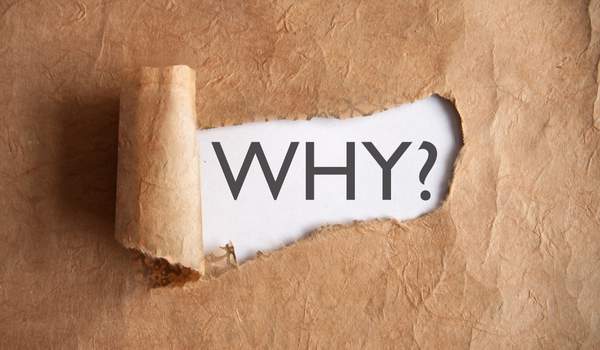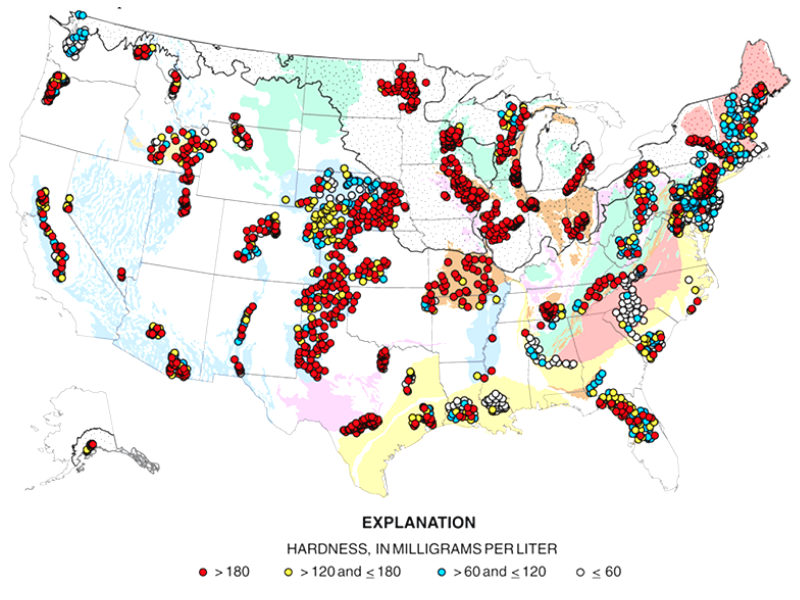Whole house filters are great at removing contaminants — but can they soften your water too?
Short answer: No. Most whole house water filters are not built to tackle mineral hardness. If your shower glass is crusted with white spots or your appliances wear out faster than they should, a dedicated water softener is your best bet.
Let’s break down what whole house filters do well, what they can’t do — and how to tell if you need both systems working together.
🔑 Key Takeaways
- 🧪 Water softeners use ion exchange to remove hard minerals like calcium and magnesium. Here’s how it works.
- 🚫 Whole house filters are not designed to reduce hardness — they focus on things like chlorine, lead, or VOCs.
- 🧼 Hard water isn’t unsafe, but it can cause limescale buildup, dull your laundry, and shorten the lifespan of appliances.
- 💧 If you want clean and soft water, combining a filter with a softener is your best solution — especially in areas with high mineral content.
- 🛠️ Some systems combine both functions in one — but not all do. Check the specs before buying.
🧱 Why Filters Don’t Soften Water

Whole-home water systems do a great job filtering out unwanted contaminants — but when it comes to minerals like calcium and magnesium, they’re not built for the job.
💡 What makes water “hard”?
Hard water contains elevated levels of calcium and magnesium. It’s perfectly safe to drink, but it can be a pain for your plumbing — causing scale buildup in pipes, spots on dishes, and dry skin after showers.
🚿 Is Hard Water Actually Bad?
Not really — at least not for your health. Hard water is safe to drink and cook with. But it can be hard on your home.
Here’s what it tends to mess with:
- ⚙️ Appliances – Mineral buildup shortens the lifespan of water heaters, dishwashers, and washing machines.
- 🚿 Plumbing – Calcium deposits clog pipes over time, reducing water pressure.
- 🍽️ Surfaces – Expect spots on glassware, film on sinks, and dull residue on fixtures.
- 🧴 Skin & Hair – Soap doesn’t lather as well, and it can leave your skin feeling dry or tight.
💡 Pro Tip: If you’ve got a lot of hard water scale, you’re not alone — roughly 85% of U.S. households have hard water. But the fix is simple: install a system that’s actually made to remove those minerals.
📊 What Rating Qualifies As Hard Water?

Water hardness is measured in grains per gallon (GPG) or parts per million (PPM) — both indicate how much calcium and magnesium is in your water.
Here’s how hardness levels are typically classified:
| 💧 Hardness Level | ⚖️ Grains Per Gallon (GPG) | 📏 Parts Per Million (PPM) |
|---|---|---|
| 🟢 Soft | 0 – 3.5 | 0 – 60 |
| 🟡 Moderately Hard | 3.6 – 7.0 | 61 – 120 |
| 🟠 Hard | 7.1 – 10.5 | 121 – 180 |
| 🔴 Very Hard | 10.6+ | 181+ |
💡 Quick Tip: If your water tests over 7 GPG, you’re officially in “hard” territory — and likely dealing with scale, soap scum, and dry skin. That’s when a softener (or conditioner) starts to really pay off.
❌ Why Don’t Whole Home Filters Soften Water?

It all comes down to what they’re designed for. Whole home filters and softeners are built for different jobs — and the materials inside each reflect that.
- 🧱 Filtration systems rely on media like activated carbon, KDF, or catalytic blends to capture things like chlorine, lead, sediment, and VOCs. They’re great at improving taste, odor, and chemical safety — but not mineral content.
- 🧪 Softeners, on the other hand, use a process called ion exchange to swap out hard minerals like calcium and magnesium with sodium or potassium — softening the water in the process.
- So, even if you install a top-tier filter, it won’t solve hard water issues unless it’s paired with softening tech.
🔗 Curious how whole home filters work behind the scenes? This guide breaks it down in plain English.
💡 Pro Tip: If you’re seeing scale, spots, or soap scum, it’s not your filter’s fault — it’s just not built for that. You’ll need a softener (or a filter/softener combo) to actually reduce hardness.
💧 What Do Whole Home Filters Actually Remove?
While they won’t tackle hard minerals, whole home systems do a lot of heavy lifting when it comes to water safety and clarity. Installed at the point where water enters your home, they treat all the water that flows through your pipes — not just what comes out of the kitchen tap.
Here’s a quick look at what the best systems can target:
- 🚫 Chlorine & Chloramine – Common in city water; affects taste and smell
- ⚙️ Heavy Metals – Lead, mercury, and copper can leach from aging pipes
- 🦠 Bacteria & Viruses – Some systems add UV to kill harmful pathogens
- 🌾 Pesticides & Herbicides – From lawn runoff and agricultural zones
- 💊 Pharmaceutical Residue – Traces of medications in city water
- 🧪 VOCs (Volatile Organic Compounds) – Linked to industrial pollution
- 🪨 Sediment – Sand, rust, and debris from corroding pipes
- 🧬 PFAS (“Forever Chemicals”) – Found in non-stick, waterproof, and stain-resistant products
- ☢️ Radon & Arsenic – Naturally occurring but still hazardous
Not every system removes every contaminant — which is why knowing what’s in your water helps match you with the right filter.
💡 Helpful to Know: Want full coverage? Many whole home filters use a multi-stage approach — combining sediment prefilters, activated carbon, and specialty media for broader protection.
💡 What’s the Best Way to Actually Soften Water?

If your main concern is limescale, poor soap performance, or chalky buildup on fixtures — filtration alone won’t cut it. To truly soften water, you need a system designed to remove hardness minerals.
🧪 Ion exchange water softeners are still the gold standard. They swap calcium and magnesium (the culprits behind hard water) for sodium or potassium, leaving water smoother, cleaner-feeling, and far less harsh on your plumbing and appliances.
Here’s what makes a softener the go-to solution:
- ✅ Removes minerals responsible for hardness
- 🚿 Helps soap lather better and rinses cleaner
- 💧 Reduces buildup in pipes, fixtures, and appliances
- 🧴 Leaves skin and hair feeling softer after showers
💡 Pro Tip: Curious how the softening process works? Here’s a deeper dive into how softeners operate.
💭 Final Thoughts
Whole house filters do a lot — but softening water isn’t one of them. If you’re dealing with hard water scale, a dedicated softener is still the go-to solution.
That said, the best results often come from combining systems. A softener handles minerals like calcium and magnesium, while your filter takes care of chlorine, sediment, and other unwanted contaminants.
Know what’s in your water, match the right tool to the job, and you’ll end up with cleaner, softer water that’s better for your home and everything in it.
 94 people found this helpful. Was this guide helpful to you?
94 people found this helpful. Was this guide helpful to you? 

